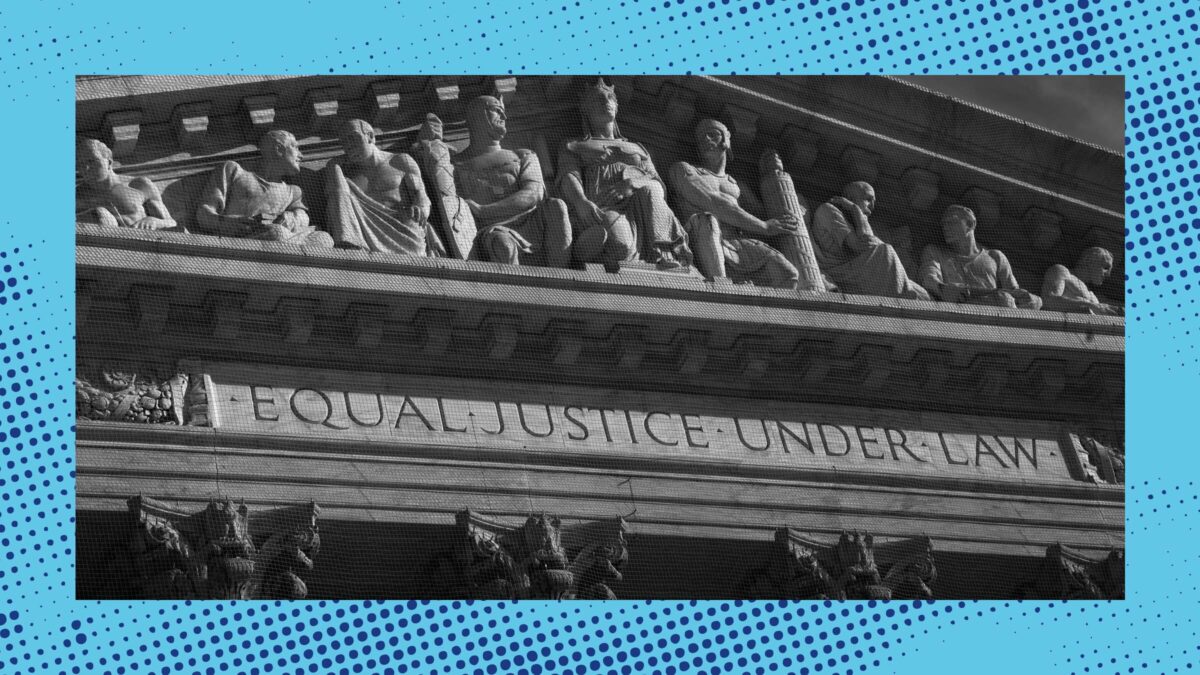Editor’s Note: The following statement was written by current federal law clerks regarding the ongoing war in Gaza. Balls & Strikes has verified their identities, but is publishing the statement anonymously for the reasons the signatories detail below. To date, 39 clerks have signed the statement; other clerks interested in doing so may reach out to me via email or Signal.
Last fall, human rights advocates sued the Biden administration in federal district court in California, arguing that it was “failing to uphold its legal obligation to prevent genocide” in Gaza. In an order published on January 31, 2024, Judge Jeffrey S. White wrote that based on the “undisputed evidence” before the court, the “current treatment of the Palestinians in the Gaza Strip by the Israeli military may plausibly constitute a genocide in violation of international law,” and is “intended to eradicate a whole people.”
However, White dismissed the case on the grounds that federal courts have no power to address the United States’s military and financial support to Israel. Advocates were thus met with the common refrain: The war in Gaza is a “political question,” beyond the reach of the courts.
Outside the courtroom, individual members of the judicial branch are, in theory, similarly powerless to address this issue. Judicial ethics rules prohibit both judges and their law clerks from engaging in “political activity,” a broadly-defined term that in practice incorporates most forms of public advocacy. With respect to the war in Gaza, many of us were explicitly instructed by our judges not to participate in a range of activities from providing legal services, to attending protests, to liking related Instagram stories on our private accounts. Some of us were even advised against discussing the conflict in our family group chats over concern that our words could be perceived as representing the opinion of the court for which we work.
Violations of these rules could result in immediate termination of our clerkships—a potentially career-ending ramification. We have thus been forced to spend the last several months as only passive observers of Israel’s assault on Gaza.
Yet many judges have not been deterred from leveraging their powerful positions and life tenure to weigh in on this issue. For example, in a recent statement, 13 federal judges vowed not to hire Columbia University graduates as law clerks unless the school imposes “serious consequences” on students who participated in pro-Palestine demonstrations. The judges further urged the university to expel, terminate, and identify these students so that “future employers can avoid hiring them.”
Individual judges have publicly expressed similar sentiments. One announced that he will not hire Harvard Law School students who signed solidarity statements. Another judge required his incoming clerks to confirm that they or groups they belong to have not done anything that could be construed as “celebrating or condoning” the October 7 attacks—which, according to a recent resolution passed by the U.S. House of Representatives, could include protest slogans like “From the river to the sea, Palestine will be free.”
And beyond strong-arming universities and new graduates, 14 judges recently accepted an invitation to visit Israel, where they met with government officials and Israel Defense Force soldiers to gain “an up-close view of what happened in Israel on October Seventh.” One participating judge explained that they were there to “bear[] witness to atrocities.”
In that spirit, we, too, would like to bear witness: to the ongoing genocide in Gaza; to our government’s complicity in that genocide; and to the bravery of those resisting state-sanctioned violence to call for a free Palestine—from campus solidarity encampments to the Gaza Strip. Although the rules of the judiciary prevent us from publicly advocating at this time, we write this letter as a small gesture of our love and solidarity.

